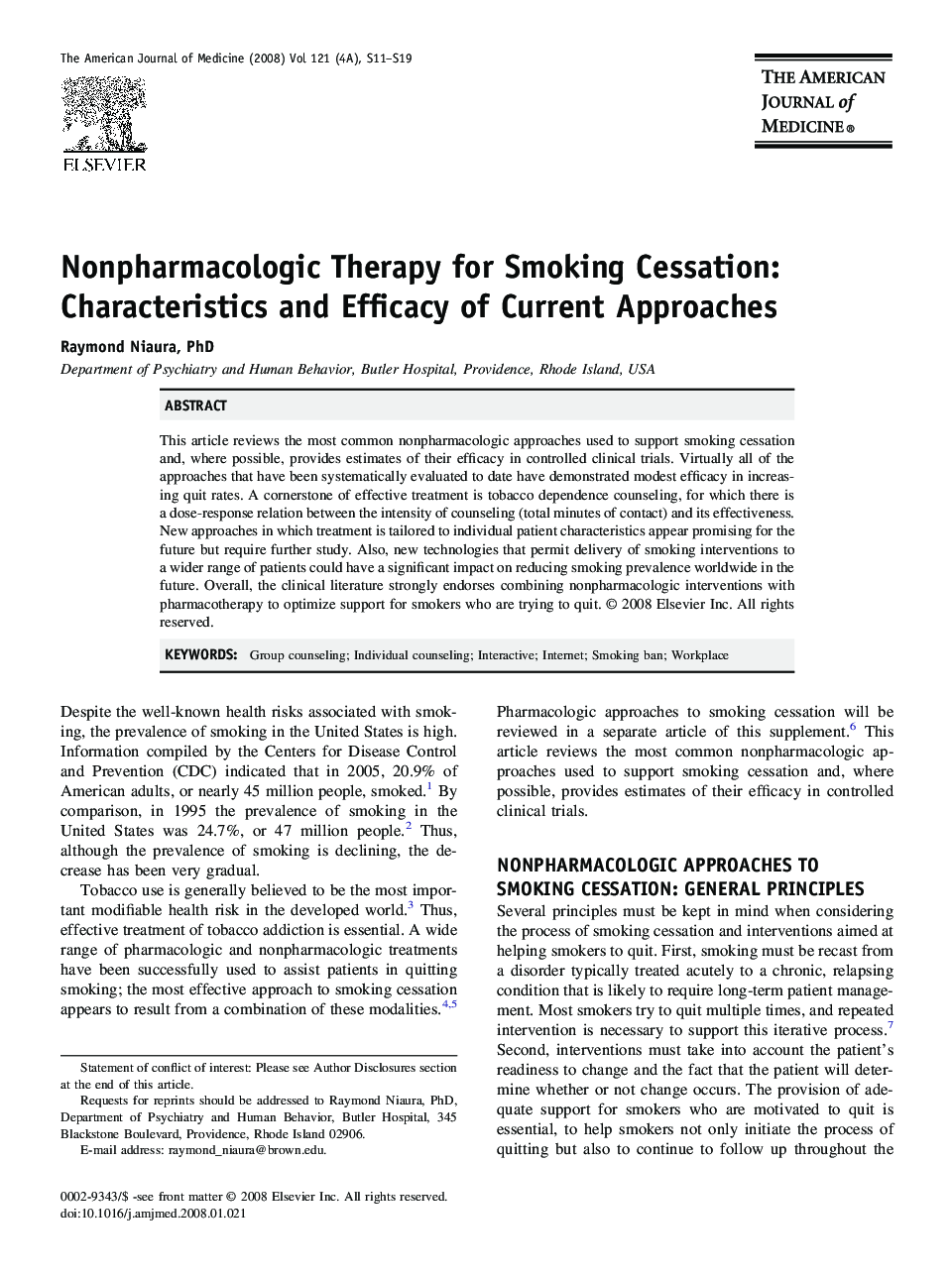| Article ID | Journal | Published Year | Pages | File Type |
|---|---|---|---|---|
| 2720167 | The American Journal of Medicine | 2008 | 9 Pages |
This article reviews the most common nonpharmacologic approaches used to support smoking cessation and, where possible, provides estimates of their efficacy in controlled clinical trials. Virtually all of the approaches that have been systematically evaluated to date have demonstrated modest efficacy in increasing quit rates. A cornerstone of effective treatment is tobacco dependence counseling, for which there is a dose-response relation between the intensity of counseling (total minutes of contact) and its effectiveness. New approaches in which treatment is tailored to individual patient characteristics appear promising for the future but require further study. Also, new technologies that permit delivery of smoking interventions to a wider range of patients could have a significant impact on reducing smoking prevalence worldwide in the future. Overall, the clinical literature strongly endorses combining nonpharmacologic interventions with pharmacotherapy to optimize support for smokers who are trying to quit.
